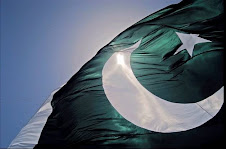By: Romesa Khalid
The writer is a member of the editorial team and opinion leader at Pakistan First.
Whether it is in political circles or household discussions, Pakistan has got to be one of the most sensitive topics being discussed at the moment. Where are we going? What is our future? How well off will we be in a few years? What do we need to do to keep up with the times?
The British Council decided to survey the youth of Pakistan to answer these questions and although I’m not a particular fan of foreign assessments of Pakistan, a cursory glance at the resulting report, called the ‘The Next Generation Report’ revealed some important discoveries. The report is a lengthy one but I will try to summarize the core of the youths’ thoughts as best as I can.
According to the survey:
Young Pakistanis believe firmly in the importance of education. However, only 50% of Pakistani children go to primary school. Only 25% go to secondary school and only about 5% receive any higher education.
Poor children and girls face the most obstacles in achieving an education. Cost keeps poor families from sending their children to school even to a free government school because they are still required to buy books and supplies. Boys are given preference over girls because girls, who are married off and move to other families, are no real investment when it comes to education.
In government schools, class sizes are much too large and the teachers lack the will to teach. According to one young man, “…the students are large in number and the staff is limited, so less attention is given to children. The duration of the period is 25 minutes and 15 minutes are consumed in taking attendance.” [These statistics should be food for thought that maybe we are irrelevantly wasting our energies by trying to change the political process. That it is actually the infrastructure and social strata of Pakistan that deserves most of the youths’ attention].
Consequently, only 25% of Pakistanis entering the labor market think they are qualified enough for the job.
Gender issues at work are still prevalent in Pakistani society. A fifth of men are unemployed. Many believe they have unstable jobs. 22% are permanent full-time employees. 36% are self employed. 80% of women are housewives, with only 6% working. [80% of women at home mean a lot of human resources are being wasted.]
Young Pakistanis in the workplace are worried about gender, ethnic and socioeconomic biases. They fear that jobs cannot be obtained without a recommendation.
Only 10% of those surveyed have confidence in the national government. Fear of injustice is rife. [Though I am hoping, with the turn of the judiciary, that might change].
Trust in police, local government and courts is low whereas the military is widely trusted. Only 4% believe that Pakistan has low levels of corruption.
Many feel that they have no mode to express themselves, or rally for change due to lack of civil liberties. Hence, most young Pakistanis do not identify themselves with any political party (only 2% are actually members of any political party). Only 39% voted in the last election.
Surprisingly, young Pakistanis do not differ with their parents on religious grounds with most holding the same religious values as their parents [Considering that our forefather’s religious paradigms have a history of being influenced by formal religious organizations and that culture is often intertwined with their religious traditions, this finding was not something that gave me much hope].
However, political and social issues are a cause for a huge generation gap. Young Pakistanis are more civic minded than their elders, believing firmly in the power of education that teaches “…a broad understanding of the world than to simply teach practical career skills.” (Next Generation Report, pg.19). [The difference between Pakistan and developed countries is that while Pakistani kindergartners are busy taking tuitions to learn their multiplication tables, kids in developed countries such as the USA are busy learning to say please and thank you. Civic sense must be taught at these tender ages, not to rowdy teenagers on motorbikes when it is already too late. This is an aspect of human psychology that developed countries have availed beautifully.]
Young people concede to the fact that terrorism is widespread in Pakistan but want the world to understand that most of the time it is Pakistanis that are victims of terrorism, not the other way around.
The next generation of Pakistan has virtually no trust in its leaders. They believe that they are the tools for change but that they are not receiving the opportunity to be that change. Despite all this, the survey also shows that majority of Pakistanis believe that Pakistan is the best country in the world. Is this simply a matter of national delusion and defense mechanism or is there something real and possible behind the thought that Pakistan is the best? Is collective action required to change Pakistan or is individual effort the key? Will it take a revolution or miracle to change the above statistics or will it simply be a matter of reflection and introspection?These are questions I would like to ask.
This article was first published on pak1stanfirst.com on January 6th, 2010
-


No comments:
Post a Comment